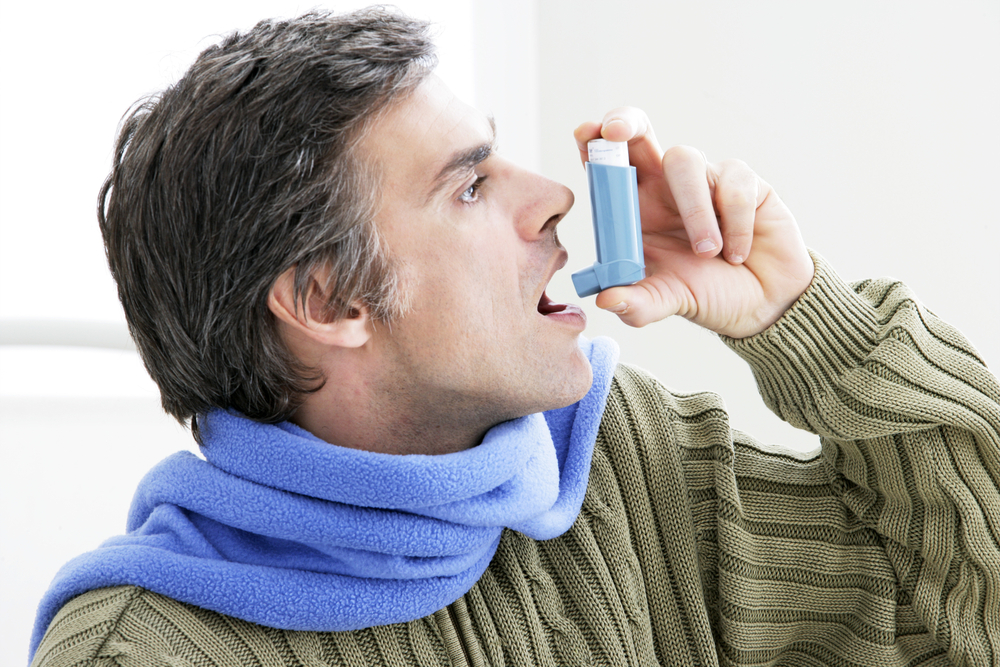Contents:
- Medical Video: How an asthma attack occurs
- Seven types of asthma you should know
- 1. Allergic asthma
- 2. Sports asthma
- 3. Asthma coughs
- 4. Asthma due to certain jobs
- 5. Nocturnal asthma
- 6. Medication asthma
- 7. Other conditions that can trigger asthma
Medical Video: How an asthma attack occurs
Asthma is a chronic disease caused by inflammation in the respiratory tract. Inflammation is what makes the respiratory tract become swollen and sensitive. There are many types of asthma that are classified according to their causes. Know the different types of asthma in order to find out the best way to deal with it.
Seven types of asthma you should know
1. Allergic asthma
This type of asthma is the most experienced by people with asthma. Because, allergies and asthma are related to one another.
Rhintis is allergic is the most common chronic allergy which causes inflammation of the inner lining of the nose. People who experience this condition have increased sensitivity to allergies. As a result, immune cells (immune) release histamine in response to contact with allergens (allergens).
Well, theatmin with other chemicals is what causes allergic symptoms. Usually, allergens will enter the body through the breathing process.
Those who experience allergic rhyme will feel some symptoms such as a cold that occurs suddenly, sneezing without stopping, swollen nasal passages, runny eyes, and itchy throat. Some of the most common triggers for allergic asthma are mold, dust, mites, and animal fur.
Prescription drugs are the best solution for controlling allergies so that coughing and other asthma symptoms subside soon.
2. Sports asthma
This is a type of asthma that can arise because you do sports or physical activity. Most people with asthma experience asthma symptoms when they do sports activities. However, there are also some people who do not have asthma, including Olympic athletes, who actually develop asthma symptoms only when they exercise.
This type of asthma will make the respiratory tract narrow at its peak in the range of 5 to 20 minutes after exercise, so that someone will difficulty breathing.
Symptoms usually begin with coughing and wheezing (breathing that sounds like a soft whistle). Using an asthma inhaler before starting exercise can be one way to prevent an asthma attack when exercising.
It is important to know that exercise does not cause asthma. But, exercise can be one of the triggers of asthma symptoms in certain patients.
3. Asthma coughs
In addition to allergic asthma, asthma cough is also a type of asthma that many people experience. In this type, severe and severe coughing is the most dominant symptom that often occurs.
Not only that, some of the causes of this cough can be caused by postnasal drip, chronic rhinitis, sinusitis (inflammation of the sinuses), or because of acid reflux disease (GERD or heartburn).
Cough asthma is very undiagnosed and difficult to treat. Triggers for coughing asthma are usually respiratory and sports infections. If you experience a prolonged cough, immediately check with your doctor in a lung specialist. The treatment usually done is a lung function test to see the performance of your lungs.
4. Asthma due to certain jobs
This type of asthma is asthma caused by triggers in the workplace. If you experience this condition, you may experience difficulty breathing and develop asthma symptoms while you are working.
Many people who experience occupational asthma experience colds, stuffy nose, eye irritation, runny eyes, and coughing wheezing.
People who are most susceptible to working asthma are construction workers, animal breeders, nurses, carpenters, farmers, and other workers who experience air pollution exposurechemicals, engine fumes, and cigarettes that can cause asthma symptoms.
5. Nocturnal asthma
Nighttime asthma, or commonly referred to as nocturnal asthma is a type of disease that arises only at night or during sleep. Because, this type of asthma is strongly influenced by human biological clock (circling rhythm).
Research shows that the most deaths related to asthma occur at night. This condition occurs due to increased allergen exposure (asthma triggers), air temperature, sleeping position lying down, or even the production of certain hormones that follow the body's biological clock.
In addition, symptoms of sinusitis and asthma generally occur at night, especially if postnasal droplets trigger symptoms such as coughing.
Always providing asthma medication at the bedside is the main key to overcoming nighttime asthma and getting quality sleep.
6. Medication asthma
Most people never think that prescription drugs can worsen asthma symptoms. Aspirin and non-steroidal anti-inflammatory drugs (NSAIDs) can aggravate asthma symptoms and can even be fatal.
If you are one of the people who are sensitive to these drugs, avoid them ibuprofen, naproxen, and diclofenac because they can trigger an asthma attack. Especially for those of you who already have a history of asthma.
Always consult with your doctor regarding the use of these drugs before you consume them.
7. Other conditions that can trigger asthma
Some of the following diseases can cause some symptoms that resemble asthma, but basically they are not asthma.
- All types of wheezing are actually not asthma. Although in most cases, wheezing is a symptom that triggers asthma.
- Heart asthma, or a form of heart failure where symptoms are similar to some common asthma symptoms.
- Vocal cord dysfunction.












